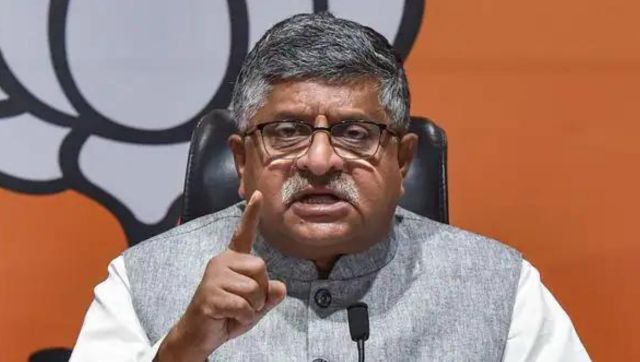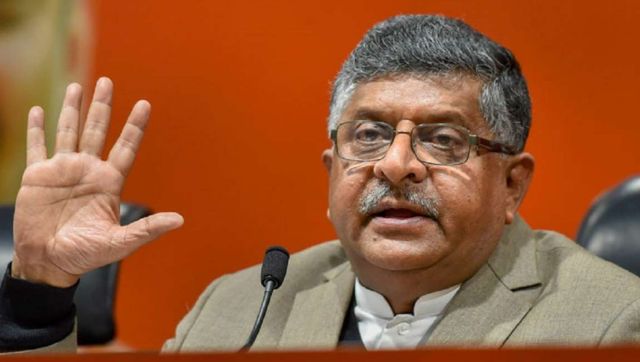Growing clamour against the present collegium system to make appointments to the higher judiciary has found favour in the legal fraternity too. Several top jurists on Tuesday pushed for scrapping the existing system whereby judges appoint judges. they made their pitch at a meeting attended by Union Law Minister Ravi Shankar Prasad. The meeting was also attended by former CJIs AM Ahmadi and VN Khare, eminent lawyers KTS Tulsi, KK Venugopal, Law Commission chairman Justice AP Shah, Solicitor General Ranjit Kumar and former Delhi University vice chancellor Upendra Baxi.
The collegium system came into being in 1993 and in 1998 a Supreme Court Constitution Bench comprising nine judges held that the opinion of the Chief Justice of India will have “primacy”. The cry against the collegium system of appointing judges only became shriller when former Supreme Court judge Markandey Katju referred to the promotion of an allegedly corrupt judge at the Madras High Court due to political pressure and lack of appropriate action by the then top echelons of the judiciary. The political class is also seeking more transparency in the appointment of judges and is putting its weight behind the National Judicial Commission to replace the present collegium system.
“This collegium system is a perversion of the Constitution and a monstrous authority. The political class needs to set right this usurpation of judicial power. There has to be involvement of bar, academics and in Canada civil society is also represented while appointing judges to higher courts. The National Judicial Commission has to be a genuinely participatory body. There has to be democratic accountability in judicial appointments. Judges cannot have a oligarchy just because they were black robes and are learned people. The political parties must have their say,” senior advocate at Supreme Court of India and a former additional solicitor general Raju Ramachandran told CNN-IBN during a panel discussion.
Former Supreme Court judge AK Ganguly shared similar views but observed that the political community also should not have complete authority over the judiciary.
“In recent past, the appointments made by the collegium system are not working out well… But this does not mean that the political authority should have all the power. If we go back in years we have the inglorious appointment justice AN Ray as the CJI. Superseding justice Hans Raj Khanna in 1977 was the blackest day in the Indian judiciary due to political intervention,” said Ganguly.
However, there were some voices who were not completely against the collegium system of appointment. Senior Supreme Court lawyer Ram Jethmalani wanted the collegium system to be modified rather than done away with altogether although he was not against the National Judicial Commission as well.
“I don’t say the collegium should be scrapped… But I also believe in appointment of judges the executive must have a say. I want a National Judicial Commission in which undoubtedly the government’s views should be heard but the power of the Opposition should also be equal,” Jethmalani said presenting a model of his ideal National Judicial Commission.
“The bar should be represented in the Commission because they are the most qualified to know who are the bad sheep and who are not competent or educated enough or without integrity. There has to be a representative of the academic world and from the world of social sciences as well. This method appointment is working well in South Africa and Australia,” he said. He added that the collegium co-exists with the absolutely unacceptable of system of removal of a judge - impeachment. “Impeachment has got to be changed and made much simple. National Judicial Commission should have the power to appoint, transfer and remove,” he said.
Amid the call for the National Judicial Commission, some dissenting voices also existed expressing fear that the executive may become more powerful.
“The collegium was prepared to back Gopal Subramanium recently,” pointed out former additional solicitor general Bishwajit Bhattacharya. “Ever since the collegium came into being we have produced finest judges. This call for National Judicial Commission has been orchestrated by the legislative and executive. We must have the collegium in place and we only need some corrections. It is true that the politicians must have their say. But this is a sinister design to browbeat the judiciary. Now all judges in the judiciary must exercise caution. I believe the National Judicial Commission will be struck down ultra vires because of weak basic constitution,” said Bhattacharyya.
Senior advocate Kamini Jaiswal perhaps summed it up well.
“No model can be perfect. A model can be perfect depending on the people who operate it. Whatever the system might be, it must have a wide representation including consumer of justice. And I believe people who appear before the National Judicial Commission should never ever practice in a court,” Jaiswal said.


)




)
)
)
)
)
)
)
)